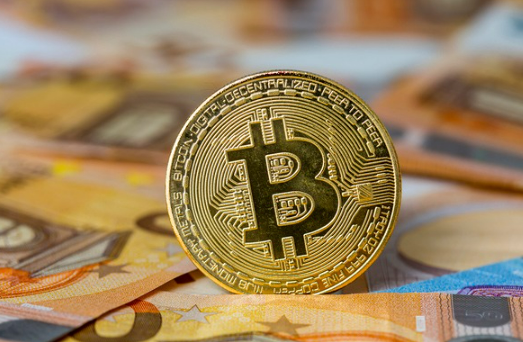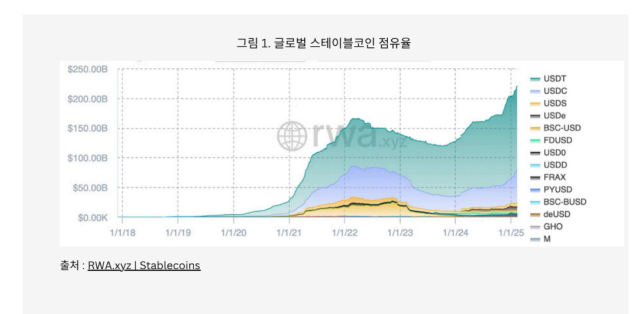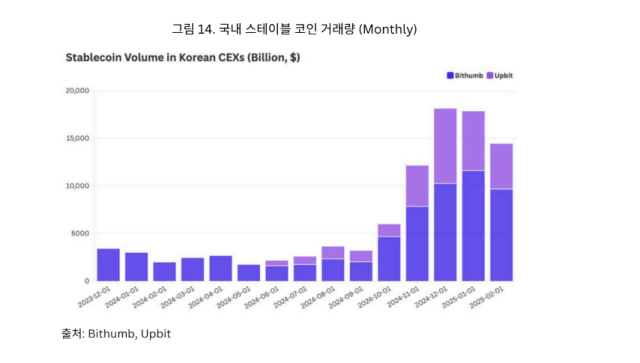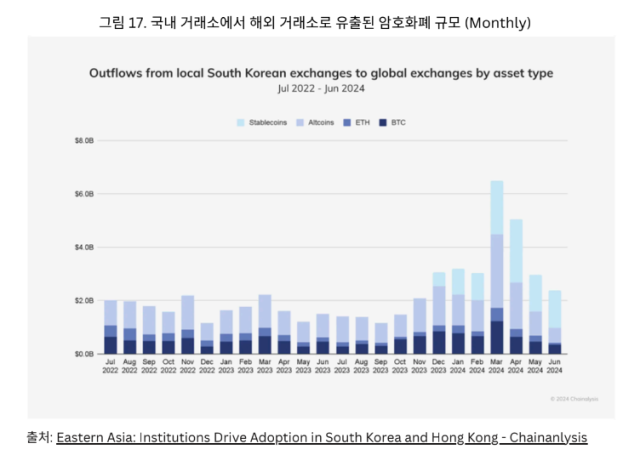
An analysis has emerged suggesting that the rapid growth of dollar-based stablecoins like Tether (USDT) is causing capital outflow from Korea, posing a threat to the Korean financial market. Particularly, given that former U.S. President Donald Trump has declared he will expand dollar dominance using stablecoins, there are recommendations to defend by introducing a won-based stablecoin and refining related regulations.
Hashked Open Research (HOR), a think tank of global Web3 venture capital Hashked, published a report on the 24th titled 'Necessity of Won Stablecoin and Legislative Proposal'. The report was jointly published by HOR and Populus, with participation from lawyers including Kim Hyo-bong from Taepyeongyang Law Firm.
━
USDT Exceeds Weekly Trading Volume of 1 Billion Dollars at Bithumb and Upbit... Second After Bitcoin
HOR diagnosed in the report that dollar-based stablecoins like USDT and Circle's USD Coin (USDC) are intensifying virtual asset capital outflow and potentially threatening the domestic financial system and the won.
According to the report, since USDT was sequentially listed on the two major domestic virtual asset exchanges Bithumb and Upbit at the end of 2023, its current weekly trading volume exceeds 1 billion dollars (approximately 1.4 trillion won). It is the second-highest trading volume among single virtual assets after Bitcoin.

━
60% of Upbit Capital Outflow is USDT... Accelerating 'Exodus from Korea'
HOR analyzed that the rapid growth of dollar-based stablecoins is causing significant economic concerns. Domestic dollar stablecoin transactions are primarily made to transfer funds to overseas exchanges or personal wallets, facilitating a 'Korea exodus' phenomenon. Actually, since USDT was listed on Upbit last June, 60% of total capital outflow occurred through USDT. According to the Financial Services Commission, the scale of virtual asset overseas outflow, which was about 21.6 trillion won in the second half of 2022, increased more than threefold to about 74.8 trillion won in the first half of last year after stablecoin introduction. HOR analyzed that "if capital outflow intensifies, it could expand beyond internal virtual asset market issues to threaten the won economic zone and financial sovereignty".

━
"Urgently Introduce Won Stablecoin and Revise Regulations"
If this trend continues, it was diagnosed that when the boundary between virtual assets and real economy blurs, the usability and control of the won will inevitably weaken. Currently, in the U.S. and Europe, environments are being created where transactions can be made directly with stablecoins through personal smart contracts linked with Visa or Mastercard, or online payment solutions like PayPal, Stripe, and Shopify. If stablecoin payment solutions become commonplace domestically, dependence on dollar-based stablecoins would be inevitable.
HOR suggested introducing a won stablecoin to address these concerns. HOR stated that "a won stablecoin can prevent USDT and other dollar-based stablecoins from being linked to fintech, payment, and asset management, thereby strengthening the competitiveness of the Korean digital asset market" and "it can enable global investors to directly access won-based virtual assets, resolving various market distortions like kimchi premium". They added that "it can provide incentives for virtual asset investors to remain in the domestic market, prevent unnecessary overseas capital outflow, and help maintain the won's dominance in the digital financial market".
Recommendations for preparing legislation to support won stablecoin introduction were also presented. They suggested institutionally supporting won stablecoin introduction like the U.S., European Union (EU), UK, Singapore, and Hong Kong. HOR noted that "while current domestic laws like the Capital Market Act and Electronic Financial Transactions Act exist, the Capital Market Act, which enforces disclosure obligations on domestic issuers, does not match the virtual asset market where overseas issuers can exist" and "the Electronic Financial Transactions Act, which presupposes a central computing system, makes it difficult to consider blockchain's decentralized characteristics, so an independent regulatory framework suitable for virtual assets and stablecoins is necessary".
Kim Yong-beom, HOR's representative, stated, "Korea also needs institutional and policy contemplation and research on stablecoins to maintain the won's competitiveness".

- Reporter Shin Jung-seop
- jseop@sedaily.com
< Copyright ⓒ Decenter, Reproduction and redistribution prohibited >







